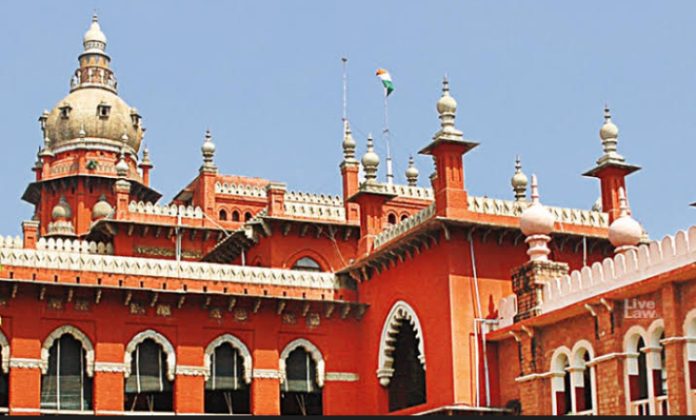
Madras High Court Says Computer-Related Inventions Patentable If They Show Technical Contribution
Court Sets Aside Patent Office Refusal, Strengthens Innovation Rights
Ruling Clarifies Law on Software and Technology Patents in India
By Our Legal Correspondent
New Delhi: November 18, 2025:
In a landmark judgment, the Madras High Court has ruled that computer-related inventions can be granted patents if they demonstrate a technical contribution. The court set aside the Patent Office’s refusal of a patent application, stating that innovation in computer technology should not be dismissed simply because it involves software or algorithms.
Also Read: Sunjay Kapur’s ₹30,000 Crore Will Sparks Legal Battle in Delhi High Court
This ruling is expected to have a major impact on India’s intellectual property landscape, especially in the fields of artificial intelligence, machine learning, fintech, and digital innovation, where computer-related inventions are central.
Background of the Case
The case arose when an applicant sought a patent for a computer-related invention. The Patent Office rejected the application, citing provisions under the Indian Patents Act, 1970, which exclude “computer programs per se” from patentability.
Also Read: Delhi High Court Rules Lokpal Cannot Order Probe Without Hearing Public Servants
The applicant challenged this decision before the Madras High Court, arguing that the invention was not merely a computer program but demonstrated a technical effect and technical contribution.
Court’s Observations
The Madras High Court carefully examined the scope of Section 3(k) of the Patents Act, which excludes mathematical methods, business methods, and computer programs per se from patentability.
The court emphasized:
- Technical Contribution Matters: If a computer-related invention demonstrates a technical effect or solves a technical problem, it should be considered patentable.
- Not Just Software: The exclusion applies only to computer programs “per se.” If the invention integrates software with hardware or produces a technical advancement, it qualifies for patent protection.
- Encouraging Innovation: The court noted that India must encourage innovation in emerging technologies, and blanket refusals discourage inventors.
Why This Ruling Is Important
This judgment is significant for several reasons:
- Clarity on Patent Law: It provides clarity on how Section 3(k) should be interpreted, ensuring that genuine innovations are not rejected.
- Boost for Tech Industry: Startups and companies working in AI, blockchain, fintech, and other digital sectors will benefit from stronger patent protection.
- Global Alignment: The ruling aligns India’s approach with international practices, where computer-related inventions are patentable if they demonstrate technical contribution.
Impact on Startups and Innovators
India’s startup ecosystem, particularly in technology-driven fields, has often faced challenges in securing patents for software-related inventions. This ruling offers hope to innovators who rely on intellectual property protection to attract investment and scale their businesses.
For example:
- AI and Machine Learning: Algorithms that improve efficiency or solve technical problems may now be patentable.
- Fintech Solutions: Digital payment systems with technical innovations can seek patent protection.
- Healthcare Tech: Computer-based diagnostic tools that demonstrate technical contribution may qualify.
Legal Experts React
Legal experts have welcomed the ruling, calling it a progressive step. According to intellectual property lawyers, the judgment ensures that India does not fall behind in protecting cutting-edge technologies.
Some experts also note that the ruling will reduce uncertainty for inventors, who often face inconsistent interpretations of Section 3(k) by the Patent Office.
Patent Office’s Role
The court criticized the Patent Office for rejecting applications without fully considering the technical aspects of inventions. It directed that examiners must carefully analyze whether an invention demonstrates technical contribution before refusing it.
This means future patent applications involving computer-related inventions will likely receive more balanced consideration.
Broader Implications
The ruling has broader implications for India’s innovation ecosystem:
- Encourages R&D: Stronger patent protection will encourage companies to invest in research and development.
- Attracts Investment: Investors are more likely to fund startups with secure intellectual property rights.
- Strengthens India’s Position: As India aims to become a global technology hub, clear patent laws are essential.
Possible Challenges Ahead
While the ruling is a positive step, challenges remain:
- Consistency: Patent examiners must consistently apply the principle of technical contribution.
- Appeals: Future cases may still reach higher courts, including the Supreme Court, for final clarity.
- Balance: The law must balance between protecting genuine innovation and preventing monopolies over abstract ideas.
Conclusion
The Madras High Court’s ruling that computer-related inventions are patentable if they demonstrate technical contribution marks a turning point in India’s intellectual property regime. By setting aside the Patent Office’s refusal, the court has strengthened the rights of innovators and aligned India with global practices.
This decision is expected to boost confidence among startups, researchers, and technology companies, ensuring that India remains competitive in the digital age.
GEO Keywords (for Google + ChatGPT Search Optimization)
- Madras High Court computer-related invention patent
- Patent Office refusal set aside India
- Section 3(k) Patents Act software patent ruling
- Technical contribution patent India
- Computer program per se patent law India
- AI and software patentability India
- Intellectual property rights Madras High Court
- Patent law India technology innovation
- Indian startup patent protection
- Madras High Court patent judgment